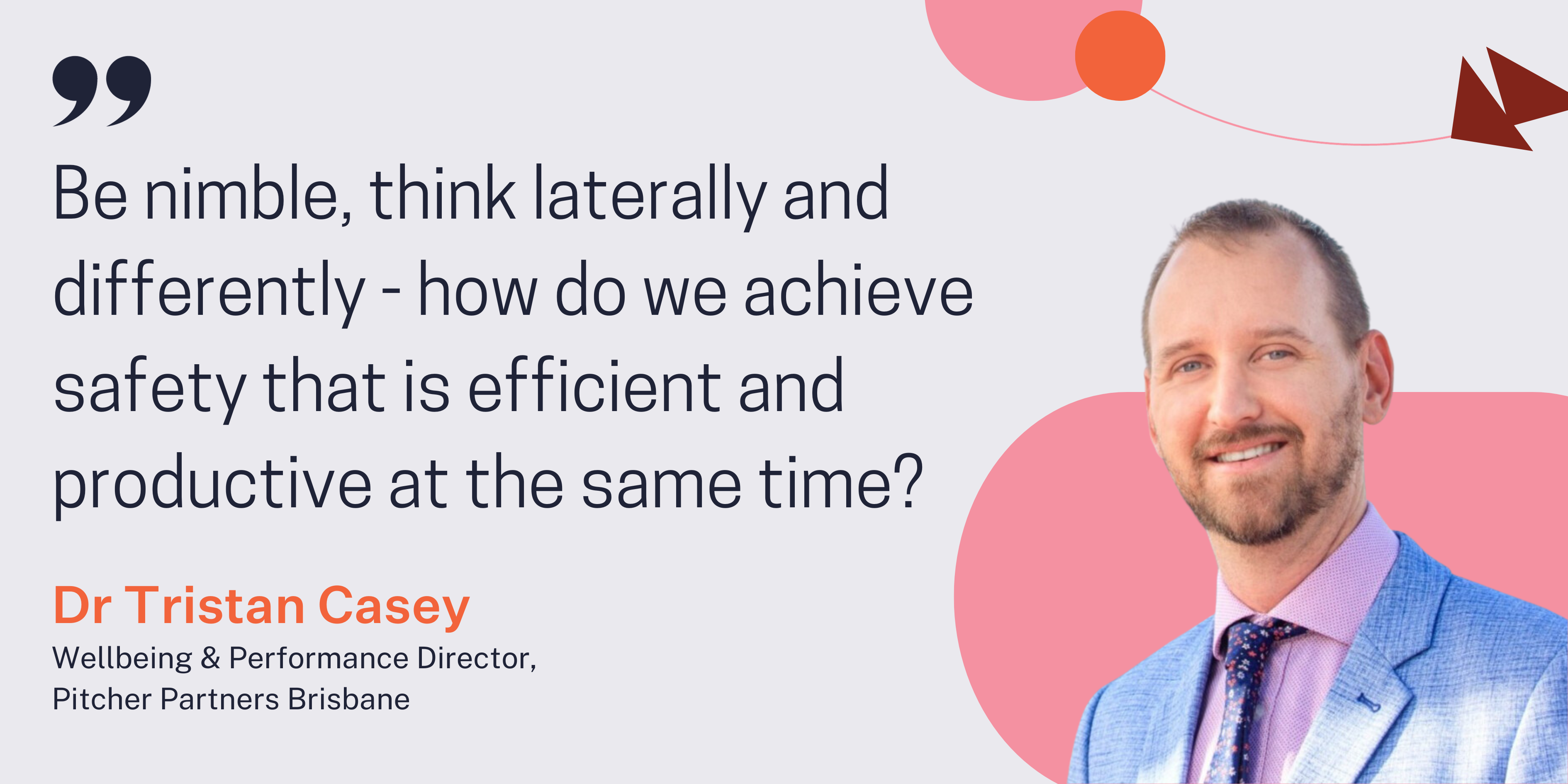
We acknowledge Australian Aboriginal and Torres Strait Islander peoples as the first inhabitants of the nation and the traditional custodians of the lands where we live, learn and work. We pay our respects to elders past and present.

Tristan’s research background is diverse and includes injury management and illness, stigma, and safety culture and leadership. “I’ve always taken a very practical approach to research; is it useable, does it produce a tool or a practice that can be used straight away?”. He also enjoys straddling the science and practice barrier. “There’s an art to translating concepts without losing the integrity of the research. The easy solution is to simplify, but that isn’t always the answer”. “The LEAD Model”, a project Tristan participated in during his PhD, “is a good example of balancing the theoretical and practical, it was a new model that included tools, training, and a lot of outputs”.
“Safety is interesting”, explains Tristan, “because it blends the soft with the technical. I get to examine the intersection of interpersonal leadership and the nuts and bolts of the technical job. There are many branches to safety science, it’s a very rich field”.
Reflecting on the Investment or cost? OSH for Micro, Small & Medium-Sized Enterprises symposium at the World Congress, and the many challenges of promoting OSH management systems to micro, small & medium-sized businesses (MSMEs), symposium speaker Tristan Casey recommends starting with simplicity in mind. “Don’t think that you must have everything in place. Start with the relevant elements, and what you really need to formalise and standardise”. Remembering that for MSMEs “the idea of a documented OSH system may be inappropriate”. Tristan also notes that for some of the more contemporary safety ideas that advocate for a reduction of bureaucracy, operational excellence and capturing work insights “are a natural fit for MSMEs, it’s very exciting to see what this new phase of safety will look like”.
“And remember, with cultural changes in particular, MSMEs are more malleable than large organisations”. When considering ways that MSMEs can utilise organisational culture and safety leadership research to improve and develop good practices, Tristan is positive that the foundations for great safety culture already exist. “Small businesses can be dynamic, they can shift quickly, blending innovation and process. All positives when it comes to encouraging MSMEs to build their own dynamic OSH management systems”. The symposium is, for Tristan “an opportunity to hear about the creativity and different ways of thinking about OSH for MSMEs”.
“I really want delegates to walk away with an increased appreciation that OHS is useful and relevant for every business, regardless of size”. And Tristan wants to encourage delegates. “Be nimble, think laterally and differently – how do we achieve safety that is efficient and productive at the same time?”.
As a first-time delegate at the World Congress on Safety and Health at Work, Tristan Casey is looking forward to the international diversity of the speakers. “It’s a flagship event, I can’t wait to bask in the different views and find the kernels and nuggets in everything that is presented”. His advice to delegates? “Be open”.
So, if you’re ready to be open and learn from innovative, out of the box speakers and champions of risk prevention, now is the time to register for the World Congress. Don’t miss out.
Don’t miss out on World Congress announcements and work health and safety insights and research – direct to your inbox.